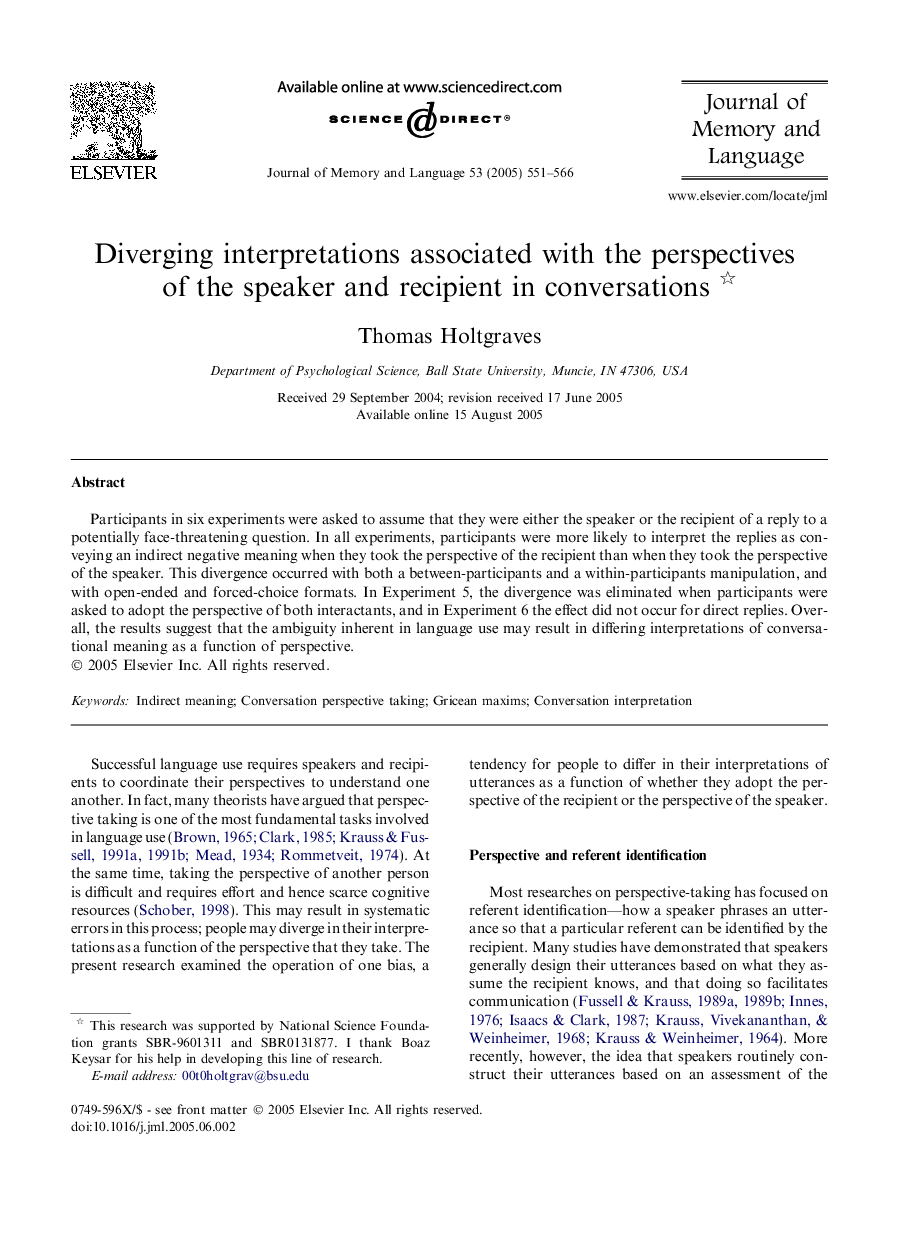| Article ID | Journal | Published Year | Pages | File Type |
|---|---|---|---|---|
| 10459859 | Journal of Memory and Language | 2005 | 16 Pages |
Abstract
Participants in six experiments were asked to assume that they were either the speaker or the recipient of a reply to a potentially face-threatening question. In all experiments, participants were more likely to interpret the replies as conveying an indirect negative meaning when they took the perspective of the recipient than when they took the perspective of the speaker. This divergence occurred with both a between-participants and a within-participants manipulation, and with open-ended and forced-choice formats. In Experiment 5, the divergence was eliminated when participants were asked to adopt the perspective of both interactants, and in Experiment 6 the effect did not occur for direct replies. Overall, the results suggest that the ambiguity inherent in language use may result in differing interpretations of conversational meaning as a function of perspective.
Keywords
Related Topics
Life Sciences
Neuroscience
Cognitive Neuroscience
Authors
Thomas Holtgraves,
